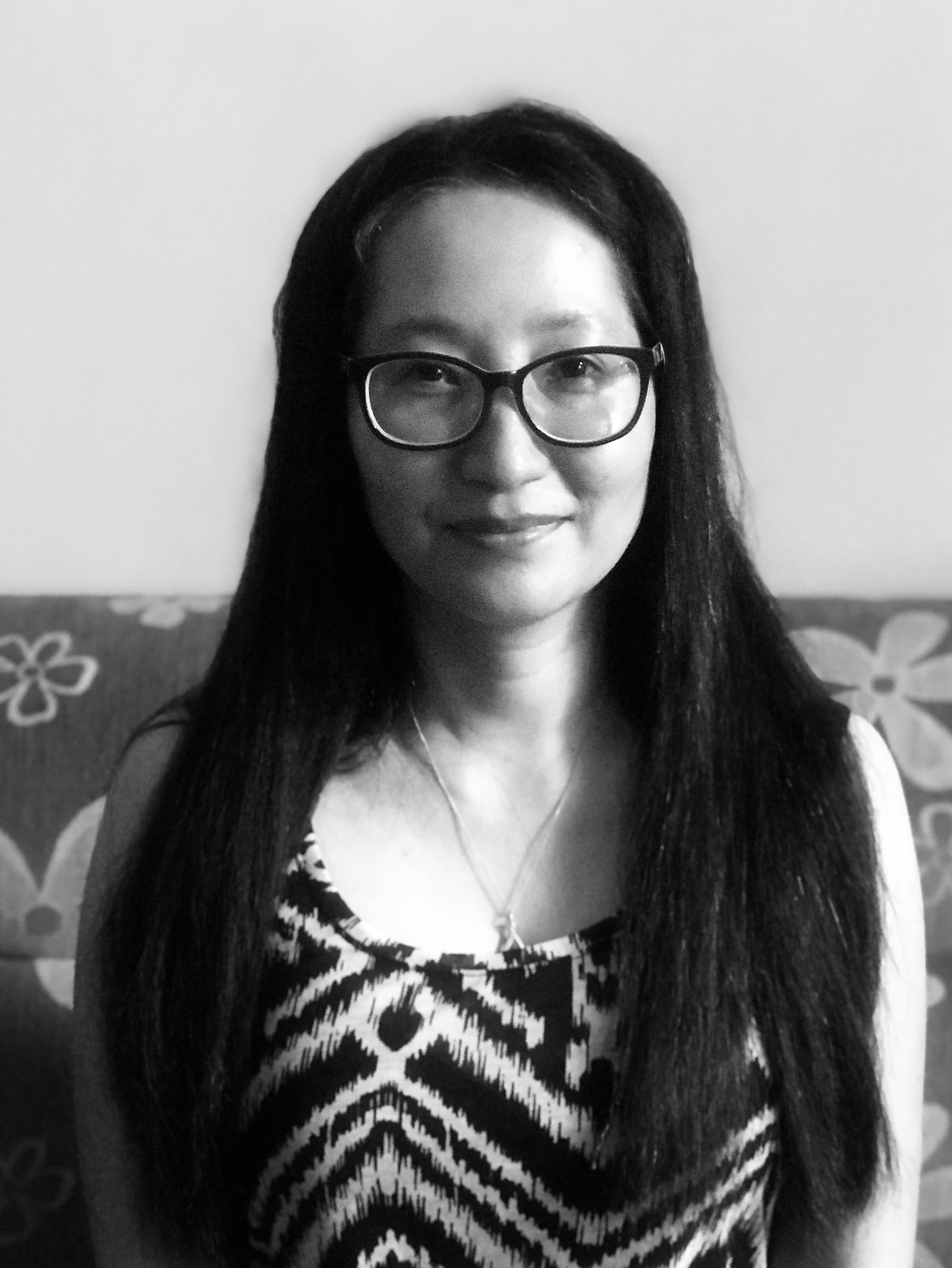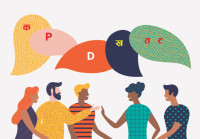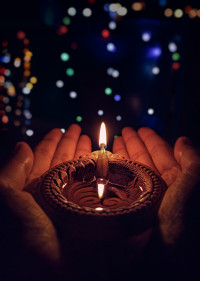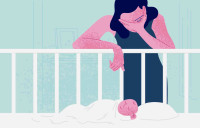As it is
Temple goers
Over the last few months of being isolated at home, I’ve come to realise that if I have a religion, it is my solitude.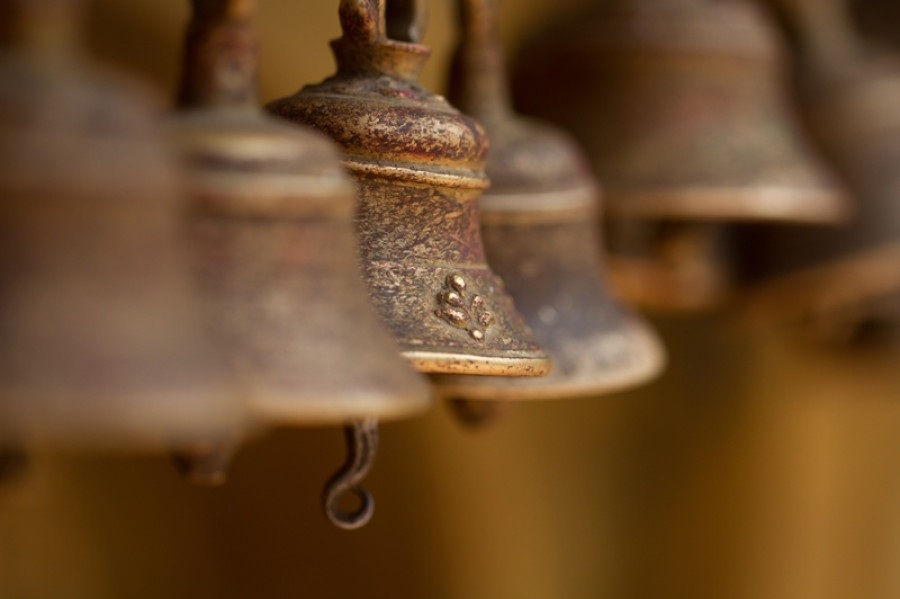
Prateebha Tuladhar
“Baa, can you take me to the temple one of these days?” Baa looks at me in disbelief and after some time, says yes.
“When do you want to go?”
Three days from my asking, he takes me. I waddle down the staircase, my comfort pillow tucked under one arm.
As my father manoeuvres the Kathmandu street potholes, my bottom, which is finally beginning to heal, is grateful for the cushioning. He drives slowly because there is no other way to protect what has been broken.
“It’s strange that you, of all people, want to go to a temple,” says Baa.
“Why?”
“I don’t know,” he says. But in his not knowing is the knowing.
One of my first childhood memories of Baa is him sitting in a corner, standoffish, during religious ceremonies in the extended family. When the person putting the tika went around with a pooja tray in one hand and the fingers of the other hand extended with the offering of a blotch of red, he would refrain saying he didn't like “the sticky feel”. Sometimes, he would settle for “just a little”. He would sit aloof during ceremonies and rarely participate, which made him invisible in these gatherings always deemed important by families.
“Such a nastik your father is!” relatives would say. And as a child who did not understand the meaning of the word, I could only decode the meaning by the tone in which the half-a-sentence was spoken. It was hurled as some sort of gali for an aberration. The tone was used to assert that there was something disagreeable about whatever it was that my father was being called. Every time the term was hurled at Baa, it stung me, like I had been struck in the face. The tone was everything.
There were no morning rituals or offerings made to the gods in our home, like there were in the homes of my relatives. When I stayed with my cousins’, I noticed their day always began differently from ours. There was always a pooja tray and the altar and lights.
The only religious rituals I became familiar with were those that punctuated and marked passing seasons. It meant Kathmandu witnessed six seasons and that each one and the intervals between them were marked by bhwea in Newa households. On these days, Mamu would leave food and flowers at the doorway or the terrace for, I think, the birds. Apart from these food rituals, I had learned another ritual at school: the recitation of “Our father in Heaven” and “Hail Mary”, which were taught to us as morning prayers. In the later years of my life, the chants would become muscle memory, springing to existence in my subconscious every time my mind went into ruminations.
The notion of religion was first introduced to me when I was filling in an application form for an entrance exam to the secondary level of a Catholic school. I had written “Hindu” in the religion box. At my age and for those times, I imagined everyone in Nepal was a Hindu, because the teachers said we were a “Hindu Kingdom”. My father corrected “Hindu” to “Buddhist”. He explained Tuladhars were Buddhist at birth and that we followed the Buddha. But there was no image or idol of Buddha in our house.
So, what was Buddhism? To me it became the day in the year when Mamu would take us to Boudha on a particularly hot day in May to light ghee lamps and to do the kora. The circumambulations were rewarded with a feast of kheer and aloo achar and sweets. I still don’t know if I enjoyed the day for the kora or for the meal after, but I do look forward to kheer and aloo achar on Buddha Jayanti.
Anyway.
So, my father and I, two people who had no real understanding of religion, were headed to a temple together. I trudged up the half-a-dozen steps leading to the deserted temple premise. Two weeks ahead of the national lockdown, the fear of Covid-19 had already banished pilgrims from the temple. My thoughts were echoed by a fellow temple-goer, who removed his shoes at a great distance from the doorway before scampering inside. I asked Baa if he wanted to come in. He said no. So, I stepped inside the temple on my own.
“Okay, I have come. This is what you wanted…” I couldn’t help grinning as I said this out loud, because it felt foolish. My fellow-worshipper looked at me for a moment when he heard me speak and then went on to make his offerings.
Towering above me was the statue of the God of Death; dark, eyes and mouth shining in silver plates. I could not figure out if the mouth was stretched in anger or if it was a perpetual grin, symbolic of the power Death exerts over all things alive. I imagined it was a grin; in response to what I had just said out loud.
I lit a few oil lamps ,managed to burn my fingers because I wasn’t used to playing with fire per se, and then I stepped out. Outside, I saw that Baa had broken a hundred rupees into tenners and was giving them out to men and women seated on the steps of the temple, waiting.
We walked back to the car slowly and I hauled myself in with some difficulty and then propped myself on the pillow, all the time cursing the moment of crash that had in some ways changed my life.
“How do you think the soothsayer knew?” I asked Baa.
“Knew what?”
“That I was going to be in an accident.”
“They always tell everyone to be cautious and that an accident is likely because anyone could have an accident. It’s a sure shot,” Baa said.
So, a soothsayer had told my sister to ask me to go to this temple to say hello to the God of Death. It would foil a prospective accident. I hadn’t listened.
I wondered if despite my lack of religion, visiting the temple now had made Death laugh a little and that if nothing else, maybe s/he had managed to feel entertained by this move from a woman who has always felt utterly confused by religion.
As a teenager, I attended Sunday mass, because it was an excuse to step out of the hostel, wear nice clothes and smile at pretty boys. I’ve done the kora because walking in concentric circles helps clear my mind. I’ve done Dashain tika because my grandfather looks forward to it all year. And I’ve asked my Muslim friends to pray for me every time my dog has fallen sick, because somehow it seems to take care of my anxiety.
Over the last few months of being isolated at home because of my health, I’ve come to realise that if I have a religion, it is my solitude. Solitude is where I’ve always found my calm and discipline. Yet, it is forsaken. Especially in these days of lockdown, when we’re in constant company of family members, seeking solitude is like finding a niche for yourself. And like my father, I too have been chastised at times for wanting to be by myself. Ekkalkate, loner, are some words that have been used at me.
“People are now saying Pashupatinath le rakshya gareko desh ma coronavirus audaina. Some people even think it’s true. When people are in despair, we seek ways to comfort ourselves. Faith is used by many, in many different ways. For some, it’s also make-believe. And that’s why, I was surprised when you asked to be brought to a temple. You never seemed to me like someone who needs the gods.”
“I know,” I say. And then we both say nothing more.




 22.64°C Kathmandu
22.64°C Kathmandu